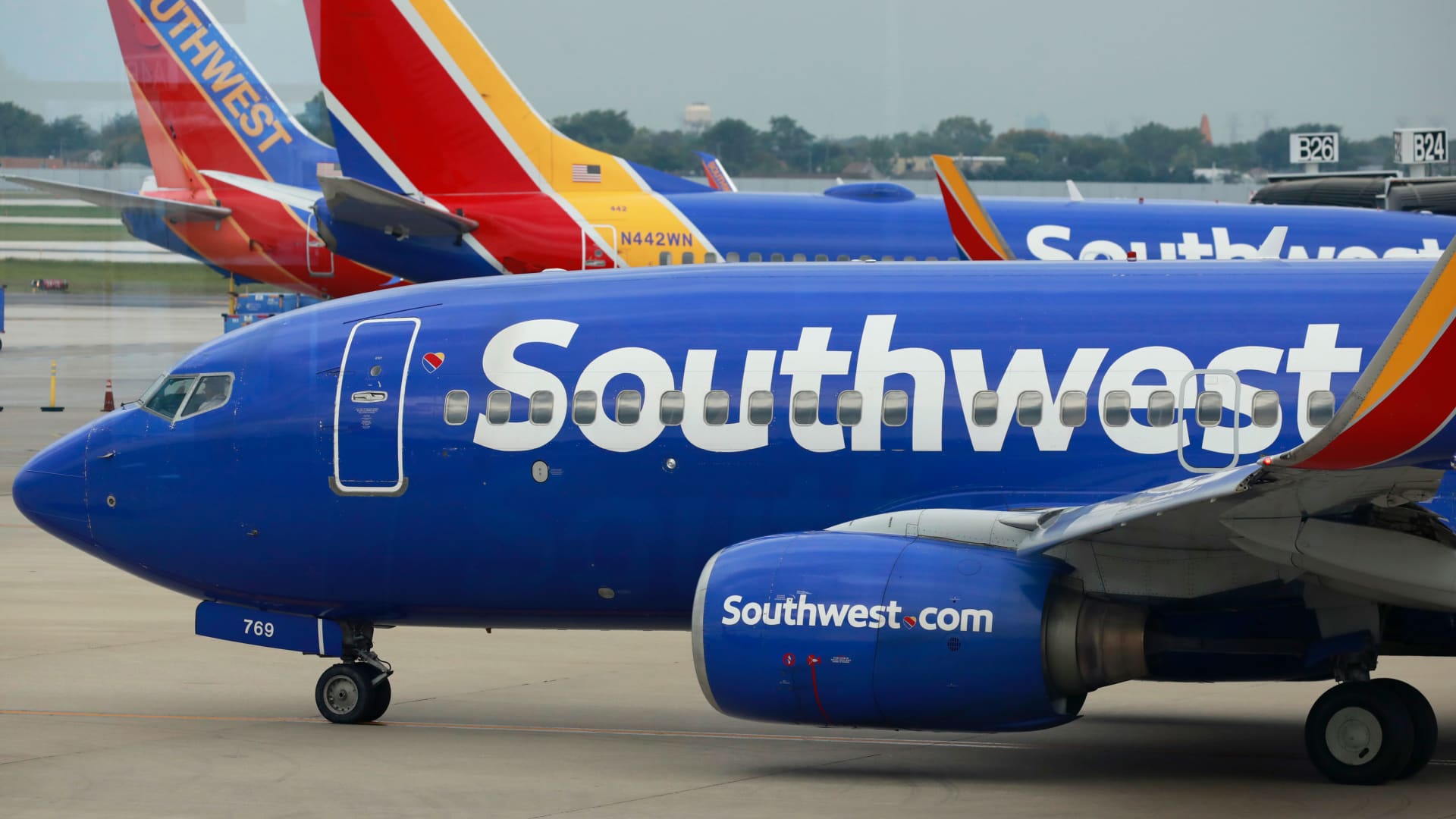A Southwest Airlines Co. Boeing 737 passenger jet pushes back from a gate at Midway International Airport (MDW) in Chicago, Illinois, U.S., on Monday, Oct. 11, 2021.
Luke Sharrett | Bloomberg | Getty Images
Southwest Airlines on Thursday joined other airlines in forecasting that strong travel demand will continue but warned that delays in new aircraft deliveries from Boeing could persist into 2024.
“While there’s noise regarding whether we are headed into a recession or not or whether we may even be in one now, we have not seen any noticeable impact on our booking and revenue trends,” CEO Bob Jordan said on the company’s quarterly call.
The airline reported a $277 million profit for the third quarter on record revenue of $6.22 billion, up nearly 33% from last year, despite an $18 million impact from Hurricane Ian. Southwest’s shares rose 2.7% on Thursday, while the broader market fell.
Here’s how Southwest performed in the third quarter, compared with Wall Street expectations according to Refinitiv consensus estimates:
- Adjusted earnings per share: 50 cents vs. an expected 42 cents.
- Total revenue: $6.22 billion vs. an expected $6.21 billion.
Airlines this month have forecast further strength in bookings through at least the end of the year. Record revenues have helped carriers cover higher costs, a reversal for one of the hardest-hit sectors in the Covid-19 pandemic.
Southwest forecast a jump in revenue for the last three months of the year of between 13% and 17%, compared with 2019 levels. It expects capacity to be down about 2% from three years earlier.
The Dallas-based airline said it expects unit costs excluding fuel to be down next year compared with full-year 2022, but said that pilot shortages are limiting flying, which keeps costs up.
Jordan told CNBC’s “Squawk Box” on Thursday that the airline would be able to increase capacity 5% to 8% if it had the pilots it needs.
For the fourth quarter, it said unit costs would be up 14% to 18% from 2019.
Supply chain problems, labor shortages and training backlogs have hindered airplane manufacturers from ramping up production to meet the travel boom, capping airlines’ growth, a factor that could keep airfares elevated.
Boeing’s CFO, Brian West, said on an earnings call Wednesday that the company expects to deliver about 375 of its bestselling 737 Max planes this year, down from its January prediction of about 500 planes.
Southwest said it will likely increase capacity 10% from 2022 during the first quarter of 2023 and 14% in the second quarter.
The airline said “uncertainty around the timing of aircraft deliveries” is prompting it to remain cautious on its “2023 capacity plan with a goal to have sufficient aircraft to operate our 2023 flight schedules, as originally published, in an effort to enhance operational reliability.”

